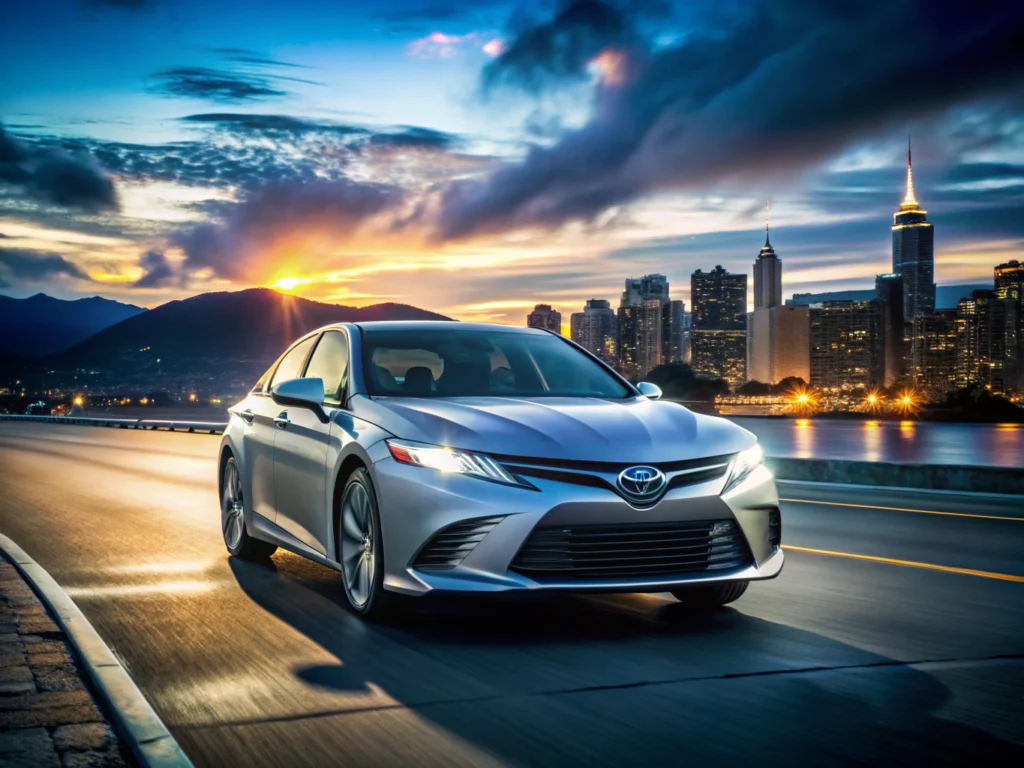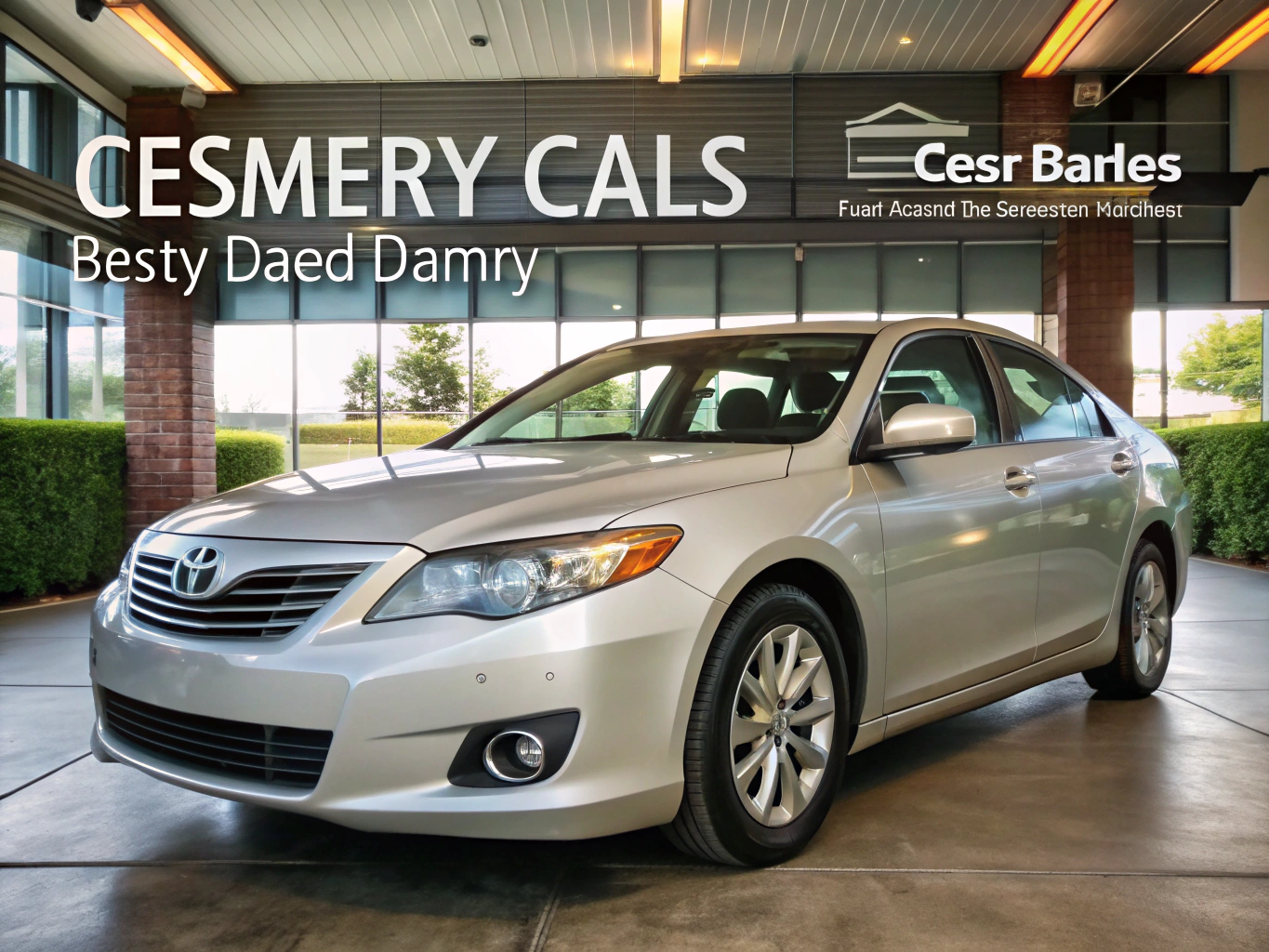Introduction
When it comes to reliability, value retention, and peace of mind on American roads, few vehicles challenge the used toyota camry. In fact, while new car prices soared by over 30% in the last five years (Cox Automotive, 2023), used Camry sales have steadily outpaced competitors, proving that “used” doesn’t mean “risky”. But is the Camry as unbeatable as they say? Let’s dig into what makes it a favorite, how you can score the best deal, and what every buyer needs to know before making their move.
Used Toyota Camry Snapshot: Why This Sedan Remains a Top Pick
The Camry is Toyota’s best-selling sedan and for good reason. As a midsize car, it seats five comfortably, averages 28-39 mpg (depending on year/engine), and boasts legendary reliability ratings (J.D. Power consistently scores it above 80/100). Most buy used camry, camry second hand shoppers score powerful-yet-economical 4- or V6 cylinder engines, spacious interiors, and advanced safety features like blind-spot monitoring and adaptive cruise (2018 and newer).
Key Highlights (2018-2022 models):
- EPA MPG: 28–39
- Horsepower: 203–301 hp (depending on trim)
- Standard Toyota Safety Sense (full-speed adaptive cruise, lane keep, pre-collision)
- 5-star NHTSA safety ratings
- Median used price (2024): $16,000–$29,000 (low mileage, one-owner)
Is it “boring”? Never! Later models pack sporty trims, touchscreens, and Apple CarPlay/Android Auto.
Time & Cost Breakdown: What’s the Real Investment?
Shopping for a used toyota camry is much more cost-effective than buying new—think 20–40% less up front. Here’s your average breakdown:
| Step | Time Investment | Cost Estimate | Tip |
|---|---|---|---|
| Research | 1–3 hours | Free | Use VIN checks, reviews |
| Test Driving | 2–4 dealer visits | Free | Inspect at different lots |
| Professional Inspection | 1–2 hours | $100–$150 | Worth every penny |
| Purchase/Final Paperwork | 1 hour | $16,000–$25,000 | Bank/credit union loans |
| DMV/Registration | 30–90 mins | $250–$500 (varies) | Shop insurance first |
Pro Tip: A certified pre-owned Camry from a Toyota dealer usually includes a multi-point inspection and warranty, often priced just 5–12% more than private sales—worth considering for added peace of mind.
Step-by-Step Buying Instructions
Step 1: Set Your Budget & Narrow Your Search
- Decide how much you can spend (factor in taxes, insurance, and potential repairs).
- Filter for models 2–5 years old for the best value/depreciation sweet spot.
- Use car search tools (AutoTrader, Edmunds, Carfax) and compare dealer vs. private sales.
Step 2: VIN & History Report
- Always get the vehicle’s VIN and run a Carfax or AutoCheck report.
- Look for a clean title, no fleet history, and consistent service records.
- Red flag: “Salvage,” “Flood,” or “Rebuilt” in the vehicle’s history.
Step 3: Inspect & Test Drive
- Check for uneven tire wear, strange smells, interior tech condition, and body alignment or repainted panels.
- Test all functions: windows, AC, infotainment, lights, cameras, and safety tech.
- During the test drive, note steering feel, brakes, engine/transmission smoothness, and unusual noises.
Step 4: Third-Party Mechanic Inspection
- Regardless of seller promises, invest in an independent mechanic inspection (~$100–$150).
- Mechanics spot issues like upcoming maintenance, leaks, or past accident repairs you may miss.
Step 5: Negotiate Your Best Price
- Use online price guides (KBB, Edmunds) as bargaining tools.
- Ask about included warranties, return policies, or dealer fees.
- For CPO models, clarify what’s covered (batteries, hybrid system, etc.).

Performance & Ownership Benefits: Numbers Don’t Lie
Why choose a used toyota camry?
- Reliability: Consumer Reports named Camry among the top 5 most reliable cars every year since 2015.
- Resale Value: Camry retains 58% of its value after 5 years (vs. 48% for average sedans).
- Fuel Economy: Save
$450/year vs. average sedan (32 real-world MPG). - Repair Costs: 37% less likely to need major repairs compared to other midsize cars (YourMechanic, 2023).
- Safety: Top IIHS and NHTSA scores, with advanced standard features in 2018+ models.
Budget-Friendly & Eco Alternatives
Looking to save more or stay green?
- Camry Hybrid: 44–52 mpg, starting $18,000 used, pays for itself if you drive 12,000+ miles/year.
- DIY Deep Cleaning & Detailing: Spend $60 instead of $200+ for pro wash/shampoo.
- Aftermarket Upgrades: Infotainment, tires, and LED lights for less than $500.
- Private Sales: Buying from owners (with proper checks) averages 10–15% below dealership prices.
Expert Tips & Tricks for a Smarter Purchase
- Verify Recalls: Run the VIN on safercar.gov to ensure all recalls are complete; Toyota covers many major fixes under service campaigns.
- Negotiate Extras: Dealers often throw in free oil changes, all-weather floor mats, or extended warranties if you ask.
- Hybrid Batteries: For Camry Hybrids 2012+, batteries routinely last 8–10 years/150,000+ miles.
- Service Records: Prioritize one-owner vehicles with regular maintenance, ideally serviced at a Toyota dealer (ask for service printouts).
Common Mistakes to Avoid
- Ignoring Flood/Salvage Titles: These reduce resale value and can introduce serious safety issues.
- Skipping Independent Inspections: Even “certified” dealer cars can miss hidden flaws; spend the $100–$150 for an expert’s eye.
- Not Comparing Insurance Rates: Some trims (XSE, V6, etc.) cost more to insure—get quotes ahead of time!
- Focusing Only on Mileage: Maintenance history trumps odometer readings—low mileage poorly maintained is riskier than higher miles with careful service.
Storage & Maintenance Advice
- Rust & Corrosion Prevention: Wash the underbody after winter/salt exposure.
- Oil Change Intervals: Stick to every 5,000 miles or 6 months, whichever comes first (synthetic preferred).
- Hybrid Battery Care: Avoid long-term storage at low charge; drive monthly to maintain battery health.
- Interior Upkeep: Treat leather seats and condition dashboard to prevent cracks/fading.
Conclusion
A used toyota camry delivers time-tested value, safety, and economical daily driving far beyond its sticker price. Just remember to follow the right process—set your budget, run history checks, demand a mechanic’s inspection, and negotiate smart. Ready to shop? Browse our Camry listings, or check out our top 10 used car buying tips here. Got a question or tip? Drop it in the comments below—we love hearing your smart car stories!
FAQs
Q: How many miles is too many for a used Camry?
A: With regular maintenance, a Toyota Camry can easily surpass 200,000 miles. Prioritize service records over mileage alone.
Q: Are used Camrys expensive to insure?
A: Camrys tend to cost less to insure than sportier sedans, especially for models with strong safety features.
Q: Is a hybrid Camry a good buy used?
A: Yes—Camry Hybrids offer excellent long-term reliability and fuel savings. Ensure the hybrid battery is still under warranty or recently replaced.
Q: What’s the best year for used Camry?
A: 2018–2022 models balance modern features, safety, and reliability at attractive price points.
Q: Where do I find the best deals on a used Camry?
A: Compare local dealer inventory, certified pre-owned programs, and reputable private listings. Always do your due diligence!
Looking for more practical advice? Explore our latest maintenance guides or subscribe for weekly smart car tips!

